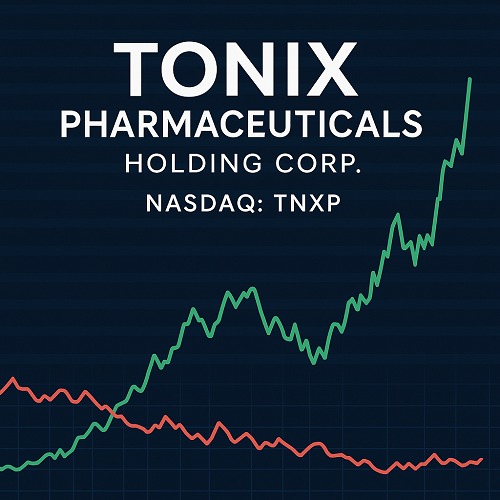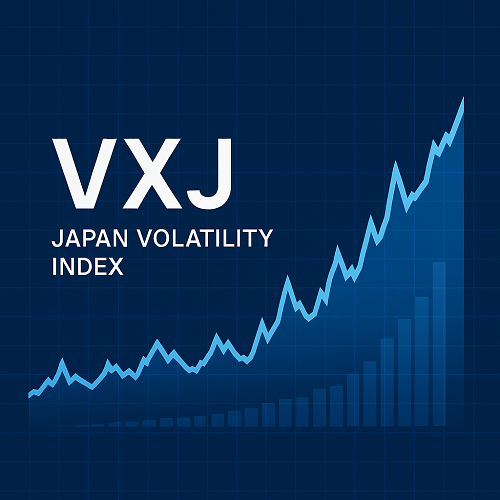Tonix Pharmaceuticals Holding Corp. (NASDAQ: TNXP) is a U.S.-based biopharmaceutical company that is transitioning from development stage into commercialization. It is focused on therapies for central nervous system (CNS) disorders, pain, stress/trauma responses, and vaccines/biodefense.
Founded originally via a reverse merger (its predecessor entity was a mining vehicle) in 2011 and publicly listed in 2013. The company headquarters are in Chatham, New Jersey.
Business Model Highlights
- Marketed product: The company recently received FDA approval for its fibromyalgia product (see Section 2) — creating its first commercial market.
- Pipeline: Includes multiple development candidates across indications (e.g., fibromyalgia, major depressive disorder, stress/trauma disorders, vaccines for orthopoxviruses).
- Revenue model: In the near term, revenue will come from the newly approved product launch + existing smaller revenue streams; longer term from pipeline success, licensing/partnerships and potentially vaccine contracts (especially for biodefense).
- Cost structure: High R&D and SG&A costs typical of biotech; the company is not yet profitable.
Thus, Tonix represents a classic high-risk/high-reward biotech trade: commercial launch plus pipeline upside vs financial and execution risk.
Key Pipeline Assets & Clinical Milestones
Let’s examine the major assets and catalysts, as they will drive both valuation and trading opportunities.
TONMYA™ (TNX-102 SL) for Fibromyalgia
- The brand name TONMYA™ is the sublingual form of cyclobenzaprine HCl developed by Tonix for fibromyalgia.
- On August 15 2025 the U.S. Food & Drug Administration (FDA) approved TONMYA as the first new fibromyalgia drug in over 15 years.
- The approval was anchored on two late-stage trials demonstrating significant reductions in daily pain compared to placebo over 14 weeks.
- The drug is a bedtime administered, non-opioid treatment, designed to also improve sleep quality — a major unmet need in fibromyalgia management.
- Estimated U.S. peak sales in some analyst models are up to ~$800 million within ~7-8 years post-launch.
Implication: This approval transforms Tonix into a commercial-stage company, shifting some risk from “if they’ll ever sell” to “can they execute the launch”.
TNX-801: Live Attenuated Vaccine for Mpox / Smallpox
- Tonix is developing a live, attenuated, minimally replicative vaccine candidate (TNX-801) based on horsepox virus, designed to protect against mpox (monkeypox) and smallpox.
- At the 2025 World Vaccine Congress – Europe, Tonix presented preclinical data showing durable immune protection after single dose in non-human primates and demonstration of safety/immunogenicity.
- This vaccine has biodefense implications and could access government or defense procurement contracts — a different revenue vector than traditional CNS drugs.
Other Pipeline Programs
- TNX-1500: an Fc-modified humanised anti-CD40L monoclonal antibody candidate, aimed at transplant rejection & autoimmune diseases.
- TNX-2900 (intranasal potentiated oxytocin) expected to initiate Phase 2 trial in 2026 for Prader-Willi Syndrome (childhood obesity genetic disorder) based on the company’s update.
- TNX-601 ER: for major depressive disorder (MDD) — regression of tianeptine analog formulation — earlier stage.
Takeaway: The portfolio spans from near-term commercial product (TONMYA) to longer-term pipeline assets with high potential leverage (vaccines + CNS). The diversity of the pipeline may appeal to traders/investors looking for multiple catalysts.
Recent News & Event Drivers
Understanding recent news is crucial for timing entries/exits in the stock.
- On October 17 2025, Tonix presented data for TNX-801 at the World Vaccine Congress-Europe showing favourable safety and durable protection in animal models for mpox/smallpox vaccine.
- On September 19 2025, Tonix announced a positive Pre-IND meeting with FDA for TNX-102 SL for major depressive disorder.
- On August 11 2025, Tonix reported second quarter 2025 earnings: revenue tiny (~$2 m) and EPS highly negative.
- Earlier, on August 15 2025 the FDA approval of TONMYA triggered press coverage and was seen as a major milestone — yet the stock moved downwards following the news.
- In May 2025, the stock achieved a Relative Strength Rating above 90 (IBD metric) but was not yet in a proper buy zone pattern.
Trading/Investment note: These news items act as potential catalysts. The FDA approval already “happened”, so the question shifts to commercial roll-out, licensing deals, and follow-on trial data. The vaccine development and other pipeline updates may form the next wave of catalyst events.
Financial Analysis & Valuation Metrics
For a trader/investor approach, the financials and valuation provide the backdrop for risk/reward.
Financial Snapshot
- Revenue: For Q2 2025 ended June 30, 2025, Tonix reported revenue of only $2 million and EPS of –$3.86 per share.
- Profitability: The company is unprofitable, with negative net margin and trailing ROE.
- Cash burn: As a commercialising biotech, Tonix will rely on external capital or product revenue ramp to cover R&D and SG&A. SimplyWallSt reports show significant burn and the need for funding.
- Institutional ownership: MarketBeat reports ~82% institutional ownership.
- Short interest: ~22% of float is shorted, suggesting strong bearish hedging or speculation.
Valuation & Analyst Targets
- MarketBeat consensus 12-month price target: ≈ $70.00, suggesting ~255% upside from ~$19.70.
- Analyst ratings: While some firms show “Buy” with high targets, others are more cautious. Example: TipRanks lists a model price target of $41.00 (≈+120%) based on mixed metrics.
- Risk adjusted: Because the company is early commercial and unprofitable, standard valuation multiples (P/E, PEG) don’t apply meaningfully. Rather, valuation is based on probability-weighted pipeline success and launch ramp.
Trading Valuation Implication
For traders, this implies: if the product launch goes smoothly and pipeline milestones hit, the stock has high upside (2–3×) potential. If launch lags or pipeline disappoints, there’s high downside. The ~22% short interest means volatility could be elevated—both an opportunity and risk for swing traders.
Stock Technicals & Market Sentiment
From a trading perspective, the technicals and sentiment provide timing clues.
Relative Strength & Chart Metrics
- The stock obtained a Relative Strength (RS) Rating of 92 (above 80 is considered strong) in May 2025.
- However, it did not yet break into a proper buy zone or breakout pattern—suggesting caution for momentum entries.
- Volatility is high: an average true range in recent months was ~12% per day according to IBD commentary.
Sentiment & Analyst Behavior
- News sentiment score (MarketBeat) for the company is currently negative (~-0.50) which is below average for medical stocks.
- Insider activity: Limited insider buying (only ~$15k last three months) but high institutional ownership (~82%).
- Short interest is elevated (~22%), which can amplify both upward momentum (in a squeeze) or downward pressure (in disappointing news).
Trading Implication
For swing traders: look for breakout chart patterns + positive news trigger. Because of the elevated short interest, a positive catalyst could generate rapid short-squeeze driven upside. Conversely, in the absence of positive trigger, the downside is also significant.
Risks & Trade-Offs
In the world of biotech these are never minor — TNXP is no exception. Here are the key risks:
Execution Risk
- Commercial launch risk: Although TONMYA is approved, successful rollout (physician adoption, reimbursement, marketing, manufacturing) is not guaranteed.
- Pipeline risk: Many assets are early stage; even with promising preclinical/Phase 2 data, regulatory or clinical failure remains high.
Financial / Dilution Risk
- The company is burning cash and is not yet profitable; it may need to raise additional capital, leading to dilution.
- Past reverse stock splits and capital raises reduce investor confidence. Example: In Feb 2025 a 1-for-100 reverse split was implemented.
Valuation & Market Sentiment Risk
- The consensus target of $70 (≈2–3× current) is aspirational and assumes near-perfect execution; if something goes wrong, multiple downside exists.
- Sentiment is currently negative; a market pull-back in biotech would hit TNXP hard, as it is a higher-beta play.
Competitive & Regulatory Risk
- Fibromyalgia treatment space has incumbents (e.g., Lyrica, Cymbalta, Savella) and while TONMYA is the first new drug in 15+ years, competitors could respond aggressively.
- Vaccine/biodefense space (TNX-801) is subject to regulatory, procurement and geopolitical uncertainties.
Technical/Volatility Risk
- High volatility means risk of rapid drawdown if news is negative — trading this stock demands disciplined risk management.
Catalysts & Upside Scenarios
What could drive upside? Here are the key levers:
Near-Term Catalysts
- Successful commercial rollout of TONMYA: early prescribing trends, payer coverage, sales data.
- Vaccine pipeline update: TNX-801 advancing into human trials or securing government contract would be a major positive.
- Additional pipeline data releases (e.g., TNX-1500, TNX-2900) or partnership announcements.
- Favorable sentiment shift, upgrade by analysts with upward price targets (current consensus ~$70).
Upside Scenario (Base Case)
Assuming execution goes well:
- TONMYA generates meaningful revenue in 2026–2027, lifting perception.
- Vaccine program takes off, opening new valuation multiple.
- Stock moves toward analysts’$70 target — ~2–3× upside from current levels.
- Traders who catch breakout + catalyst may capture large portion of move.
Downside Scenario
In a less favourable outcome:
- TONMYA commercial ramp disappoints → market turns negative.
- Pipeline setbacks or capital raise dilutes share value.
- Stock falls back to lower support levels, potentially losing 50%+ of value.
- Volatility amplifies downside in biotech pull-backs.
Trading / Investment Framework for TNXP
Given your interest in stocks/forex/crypto trading, here’s a practical framework:
Time-Horizon & Strategy
- Short-term/swing trade: Use technical breakout + news catalyst. Set tight stops (e.g., 10-15%) given high volatility. Watch for short squeeze dynamics (due to ~22% short interest).
- Mid/long-term investment: View TNXP as high-risk/high-reward biotech with pipeline/development upside. Only allocate a small portion of diversified portfolio.
Entry & Risk Management
- Entry: Wait for two conditions: (a) favourable clinical or commercial announcement, and (b) breakout chart above key resistance (volume confirmation).
- Stop-loss: For short term, consider 10-15% below entry; for investment horizon maybe 30–40% max drawdown acceptable.
- Position sizing: Given high risk, limit allocation (e.g., 1–3% of portfolio).
- Exit: For swing trade, set profit target (e.g., +50-150%). For investment horizon, review every quarter with pipeline/commercial data.
Indicators to Monitor
- Volume spikes and relative strength rating (RS > 80) for breakout signals.
- Institutional ownership changes and insider activity (positive buys are bullish).
- Short interest changes (declining short interest post-catalyst may benefit stock).
- Commercial rollout updates, pricing/payer feedback for TONMYA.
- FDA/regulatory updates for pipeline assets.
- Broad biotech sector sentiment (biotech pullbacks drag even good stocks).
Comparative Trading Approach
- This stock is more volatile than most equities — think of it like a crypto or small-cap alt: huge upside but high drawdown risk.
- Unlike forex/crypto where fundamentals may matter less, here fundamentals (clinical data, regulatory approval, commercialization) truly drive price.
- Use a hybrid of fundamental catalyst-based timing + technical breakout confirmation.
Conclusion & Key Takeaways
- Tonix (TNXP) has transformed: from pure biotech reseller to a commercial stage company with its fibromyalgia drug TONMYA approved — a major milestone.
- Its pipeline offers multiple “shots on goal” (vaccines, autoimmune, CNS) which create optionality and high upside potential.
- Financially, risk remains high: unprofitable, high cash burn, potential dilution, commercial execution yet unproven.
- For traders: breakout + catalyst signals may yield large gains; risk management is critical. For longer-term investors: this is a speculative play with meaningful upside if execution hits but also meaningful downside.
- Current analyst consensus (~$70 target) suggests ~2-3× upside from current levels, but that assumes near-perfect execution. If anything falters, downside is large.
- The trading framework is clear: wait for confirmation; control size; set stop-loss; actively monitor pipeline/commercial developments.
Frequently-Asked Questions (FAQ)
Q1: Is TNXP a “buy” right now?
A: It depends on your risk tolerance and timeframe. If you’re comfortable with high-risk/high-reward, yes as a speculative position. If you want stable earnings and low risk, probably not.
Q2: What is the key upside driver?
A: The commercialization success of TONMYA + major pipeline milestones (especially the vaccine program).
Q3: What is the key risk to watch?
A: Commercial launch failure, pipeline setback or need for dilution (capital raise).
Q4: Is short interest a concern?
A: It is both a concern and an opportunity: high short interest means potential for squeeze but also added downside pressure if sentiment turns.
Q5: How should I trade it?
A: Use it like a volatile asset: small allocation, clear stop-loss, watch for catalyst/technical entry, and be prepared for large swings.





 XAUT-USD
XAUT-USD AMD
AMD MARA
MARA SHOP
SHOP BULL
BULL CL=F
CL=F